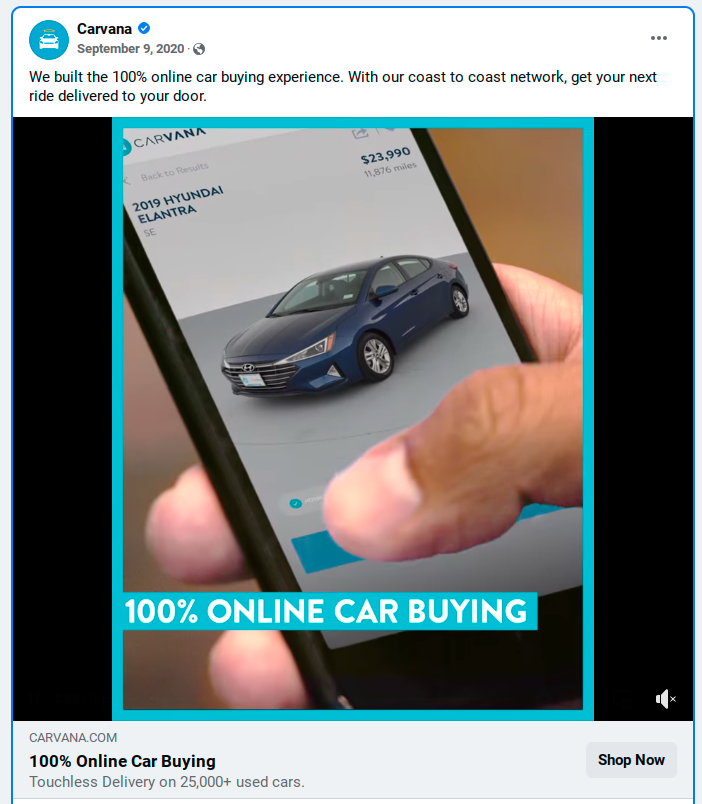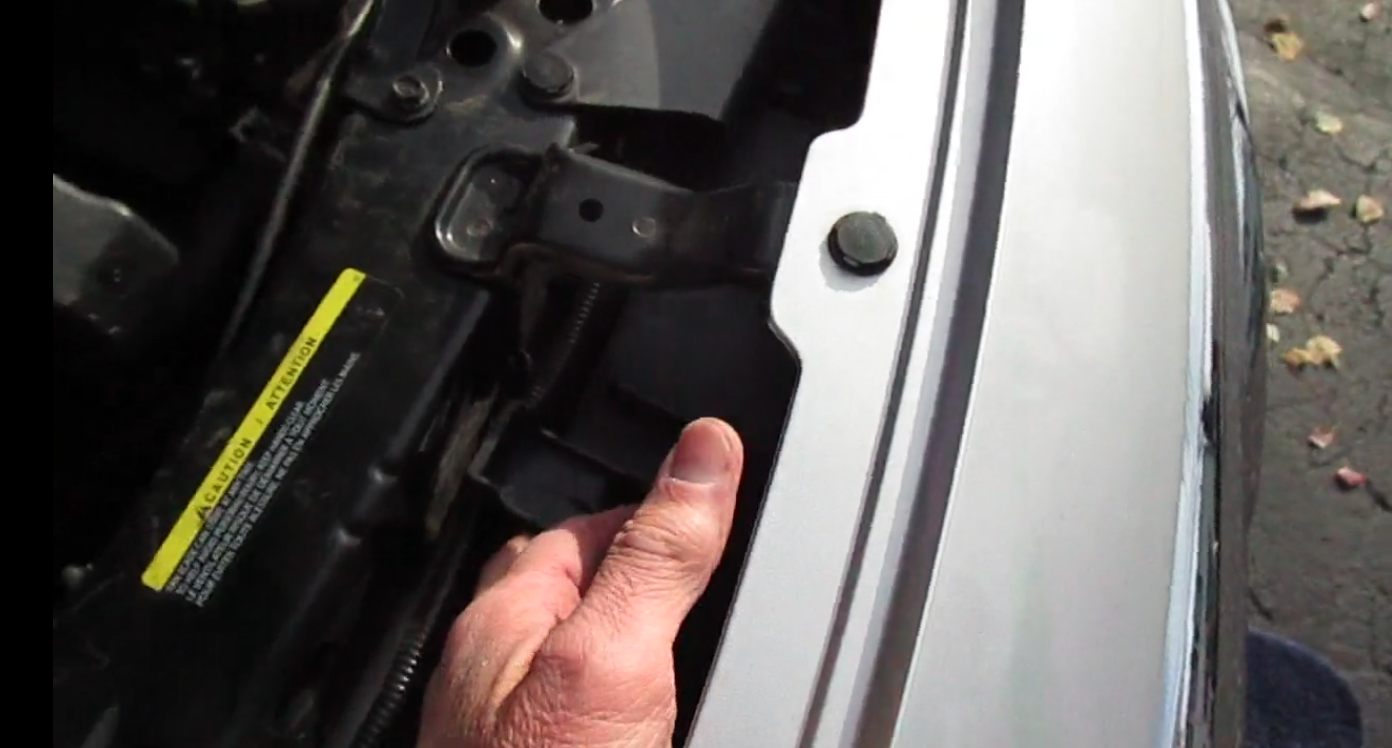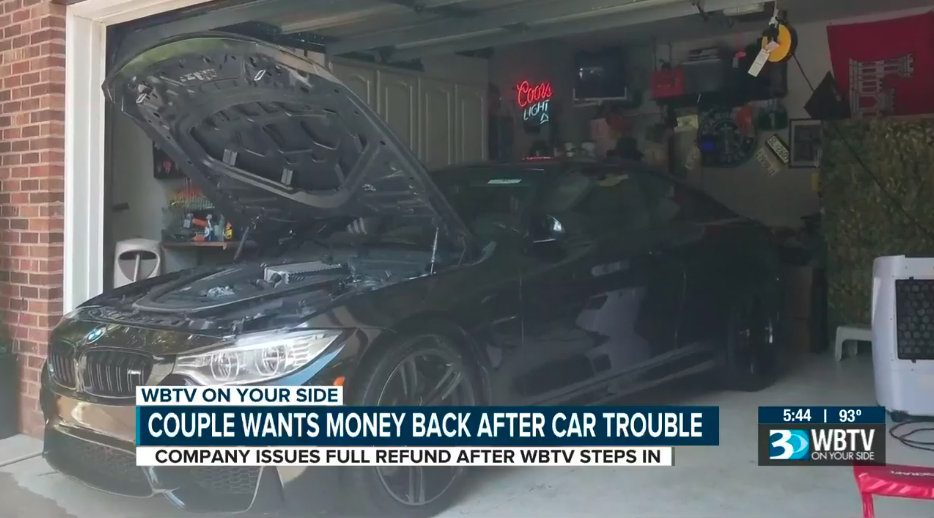Another Misrepresented Car Listing? Carvana Has Some Explaining To Do
In 2012, Carvana set out to do an interesting thing: create what it calls a "100% online car buying experience." Many applauded that goal, because going to a dealership to get harassed by high-pressure salesperson is a hassle.

But, as it turns out, there may have been an essential silver-lining to that hassle all along--and it took attempts like Carvana's (to eliminate that hassle) to illuminate this underappreciated upside. It is that seeing a car in person, before you buy it, leaves less room for the car dealer to misrepresent the car.
The online car dealer model makes buyers entirely dependent on the dealer (e.g. Carvana) to accurately represent the car being offered for sale.
Accordingly, when you read complaints by people who purchased cars from Carvana, based on certain misrepresentations Carvana made about the car, you can see patterns of Carvana allegedly exploiting this buyer dependence. (In one case, for example, on which I'll expound more fully later in this article, a Carvana customer reported that when he brought certain misrepresentations to the attention of Carvana after he had purchased his car, the Carvana delivery driver told him that it was "typical" for Carvana to intentionally omit many "issues" with a car from the "online [listing] because we don’t want to discourage people from purchasing our cars.")
Sure, seeing a car in person does not entirely eliminate the possibility that the dealer might still misrepresent something to you. But, on the other hand, buying a used car "100% online" puts you at the mercy of whatever the online car dealer decides to tell you about the car. Hopefully that online car dealer is accurately representing the car to you. But if online dealers like Carvana don't accurately represent the car to you, how could you know--until after you've already bought the car and the Carvana delivery truck drops it off in your driveway?

On a car dealership's lot, buyers have three sources of information about a car for sale: the vehicle information placard, the viewable/touchable vehicle itself, and the salesperson. With online car dealers like Carvana, there is usually only one source: the car's listing page on Carvana's website. Carvana customers, thus, have no alternative but to trust that Carvana has not misrepresented the car--whether intentionally or by accident--when they buy a car from Carvana.
Thousands of car buyers have reported complaints of misrepresentation by Carvana.
Now, if Carvana had a good track record with regard to accurately representing its cars to people, then this worry might have died on the vine long ago. But the problem is that, according to thousands of reports (inlcuding lawsuits), Carvana has misrepresented more than just a few of the cars it has sold--and, in many those instances, in major, value-affecting ways.
As you read through some of the reports, certain patterns of alleged misrepresentation by Carvana start to emerge.
Lawsuit against Carvana in Pennsylvania
In July 2019, Andrew Okulski saw a listing on Carvana's website for a 2017 Nissan Versa and decided to submit an inquiry to Carvana for further information about the car. According to Mr. Okulski, Carvana represented that the car had not been involved in any prior accidents and that the "the only blemish was a small scratch under the right-side headlight[.]" Carvana wanted $16,000 for the car, and given the condition that Carvana represented the car to be in, Mr. Okulski adjudged that to be a good deal. So, Mr. Okulski purchased the car.
Within months of making that purchase, though, the car began to show major mechanical problems: engine misfires, a shorted engine coil, shuddering on acceleration and shaking when the car went over 40 miles an hour.

Given that Mr. Okulski had, by then, only driven the car about 3,000 miles since buying it, he questioned Carvana as to whether Carvana's pre-purchase representations about the car had been true. Carvana insisted that those representations had been true and provided Mr. Okulski with a CARFAX report for the car that did not show any prior accidents.
That glaring discrepancy aside, though, to try to get the mechanical issues fixed, Carvana advised Mr. Okulski to take the car to a mechanic and to try to file a warranty claim to get the repair work covered. Mr. Okulski took the car to a mechanic as instructed. But after inspecting the car, the repair shop advised Mr. Okulski that the car appeared to have more extensive problems than Mr. Okulski had previously noticed.
As Mr. Okulski's eventual lawsuit against Carvana would put it, Mr. Okulski's mechanic noted that the car had "numerous classic, tell-tale signs of damage, improper and incomplete repairs, and still existing damage[,]" the combination of which raised serious questions about whether Carvana had either intentionally misrepresented the car to Mr. Okulski, to fraudulently induce him to purchase it, or, instead, negligently misrepresented the car, by failing to reasonably ascertain the true condition of the car by means of reasonably through research and in-person inspection.
Carvana car returned in Ohio
In November 2017, an Ohio man took delivery of a car he had purchased from Carvana. Immediately, he noticed discrepancies between what Carvana had represented to him about the car and the car's actual condition--which he was first able to see, for himself, when the Carvana delivery truck arrived:
During delivery, I noted some cosmetic issues with the vehicle that were not documented online. There were some documented issues online that were not as severe the ones they chose not to list [...] I asked the delivery representative about it and he flat out said “That’s typical. We don’t list many cosmetic issues online because we don’t want to discourage people from purchasing our cars.” Additionally, according to the person who delivered my vehicle, any damage around the perimeter of the vehicle that is beneath the center of the wheels is considered road rash and will, by Carvana policy, not be mentioned. The cosmetic issues my car had were not super major, but it did have some nicks, scratches and 'road rash' that were not mentioned online. At this point, nothing was a deal breaker so I accepted delivery. My point here is just that I would like to have known about the issues in advance and do not understand why some things were documented and others were not. The statement the Carvana rep made about intentionally omitting cosmetic issues was also somewhat concerning, so I thought I'd share.
Despite the apparent misrepresentations, because the man did not appraise the omissions to be too costly in terms of difference in the car's value, he decided to accept delivery and move to the next step: taking the car to a dealership for a pre-purchase inspection (which, in the Carvana model, is admittedly a misnomer, since this inspection can occur after you've already purchased the vehicle).
However, the dealership's "mechanic found a handful of issues[,]" none of which the man reported to have been disclosed by Carvana either. 🧑🔧
After first trying to get these issues resolved using the SilverRock warranty Carvana reportedly includes with most cars it sells, the man ran into some additional issues related to what the warranty actually covered (versus what it refused to cover) and then decided to return the car to Carvana.
As parting advice to any would-be Carvana customers, he highlighted a few takeaways that relate to this pattern of misrepresentation by Carvana, based on his particular experience:
- "Take your car to a mechanic or dealership that you trust and get a PPI done during your 7-day return policy. Do not trust that Carvana properly inspected your car. Mine had many issues, and the mechanic was shocked that it ‘passed’ the Carvana inspection."
- "Carvana delivered my car with 600 more miles than advertised. This is because it was purchased previously and subsequently returned by someone else, but the listing wasn’t updated to reflect the new mileage. If your car arrives with additional miles on the odometer, be wary. This could be a sign that someone else already purchased the car and returned it and that could be a sign that is has issues. Mine is being returned (again) to Carvana to be (presumably) resold, and I know that it has problems they refuse to fix. Hopefully they’ll disclose these problems to the next buyer ahead of time, but I wouldn’t count on it."
- "Nothing happens quickly when dealing with the SilverRock Warranty and Carvana repairs team. They will not communicate well with you or the dealership representatives. Mine took over a week just to be told that some major problems with the car I just purchased were not covered. I returned the car."
Carvana refused to cover repairs in North Carolina
Jason and Shaunta Bowlin bought a 2015 BMW M4 from Carvana in May 2020 for around $40,000. But within days of taking delivery, the check engine light came on.
Although this was annoying--particularly because Carvana's listing for the car had not disclosed any engine problems--the couple at first thought that the SilverRock warranty they had purchased with the car would cover whatever issues their mechanic might find to have caused that check engine light to have come on. So, with that expectation, the couple notified both Carvana and SilverRock of the check engine light notification:
We noticed the check engine light came on June the 8th and we immediately notified Carvana and SilverRock that there were issues with the car.
They said everything would be covered, we just had to pay a $50 copay and everything would be covered, which now we found out is not the case. We’ve been strung around for over a month.
The couple then took the car to the local BMW dealership to diagnose the check engine light issue. They were shocked when the mechanic reported back to them that he had found major engine issues:
[B]asically with a bore camera they found metal shreds in the engine and cylinder 6 was misfiring so obviously it had severe engine problems.
To repair those issues, the dealership estimated it would cost the couple around $8,000. So, what had begun as a mere annoyance had turned out to be a major, material difference in what Carvana had represented about the car's condition and the car's actual condition--a difference of at least $8,000, which does not even account for any loss of value to the car beyond the repair bill itself.
Still, the couple fully expected that the SilverRock warranty would at at least cover the $8,000 repair bill (the warranty had been pitched as coverage for 100 days or 4,000 miles after purchase, and the couple was still within that window by this time). But it turned out that Carvana and SilverRock were not willing to cover the repair bill, and instead kept giving the couple the "runaround on the phone" over the next month.

In fact, Carvana's refusal to right the wrong reportedly continued right up until a reporter from the local news station contacted Carvana about the matter. Thankfully for the couple, only hours after that reporter reached out on their behalf, Carvana change course, releasing the following statement:
We did come to a resolution and the customer is currently in the process of returning the vehicle for a full refund.
If not for the local news in this case, it's likely that the couple would have ended up stuck with a car worth far less than the $40,000 they paid for it, and an $8,000 repair bill to boot.
Despite this rare intervention by the local news, however, Carvana's apparent pattern of misrepresentation has reportedly continued elsewhere outside of public view.
Carvana's continued, deceptive practice of misrepresenting the cars it sells
Here's the pattern to watch out for:
- Carvana represents the car to be in a certain condition and to have a certain accident/repair history.
- Carvana offers a CARFAX in support of its representations as to the accident/repair history and the results of its own "150-point inspection" in support of its representations as to the vehicle's condition.
- The buyer has no choice but exclusively rely on Carvana's representations, because, prior to the buyer actually purchasing the car and the Carvana delivery truck actually dropping it off in the buyer's driveway, the buyer's only view of the car is limited to the pictures Carvana provides and what Carvana's agent represent they observed when viewing the car in person.
- After the purchase, though, the buyer discovers that the car had major mechanical issues all along--which were likely the result of an undisclosed, checkered accident repair history.
- When buyers then report the apparent misrepresentations to Carvana, little to no accountability by Carvana ensues.
Nor do the ongoing reports of misrepresentations to Carvana prompt Carvana to alter its business practices in any way so that future misrepresentations don't continue to happen in the exact same way.
The fact is, companies like Carvana seem to subscribe to the callous notion that misrepresenting their cars to make them look more attractive to buyers than they actually are is a PROFITABLE business practice; and, sadly, unless/until more buyers begin to put forth the effort to hold Carvana accountable, that callous notion may not actually be mistaken.
🆘 Need some help with your Carvana case?
You can click here to book a micro-consultation to discuss your case with an expert. It'll cost you $32. But, given how much money you likely have wrapped up in your Carvana case already, that's much cheaper than taking the default loss versus Carvana.
Plus, you'll join a growing number of consumers who are increasingly opting to stand up to Carvana's unfair and decptive trade practices--by simply making your story known and demanding a fair resolution.
In any event, good luck asserting your rights to hold Carvana accountable!